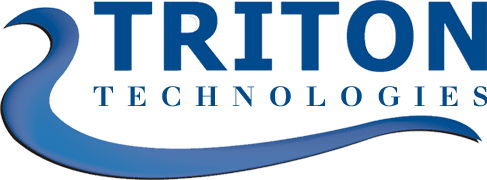In a competitive landscape where global commercial insurance rates have recently seen their first decline in seven years, insurers face increasing pressure to optimize costs and deliver top-notch services to clients. This change, tracked by Marsh’s Global Insurance Market Index, points to an industry where insurers must find ways to innovate without compromising on security, compliance, or efficiency. Managed Service Providers (MSPs) play a pivotal role in helping insurance companies face these challenges, providing scalable, secure, and cost-effective IT solutions that support business goals. Here’s how MSPs deliver IT solutions for the insurance industry, empowering companies to stay competitive amid shifting market dynamics.
1. Cybersecurity Solutions for Insurance Firms
With cyber insurance rates recently declining in several regions, including a 6% decrease globally, insurers face new opportunities and challenges in managing cybersecurity risks. For the insurance industry, robust cybersecurity solutions are essential to protect sensitive data, comply with regulations, and ensure business continuity.
Threat Detection and Prevention
MSPs offer advanced threat detection tools that help insurers monitor, detect, and respond to potential threats in real-time. This proactive approach mitigates risks and safeguards client information, policyholder data, and proprietary business insights.
Cyber Incident Response Planning
Given that cyberattacks can be costly, MSPs specialize in creating incident response strategies tailored for insurance companies, ensuring quick recovery and reduced impact in case of a breach.
Employee Training and Awareness
Many breaches occur due to human error. MSPs can provide ongoing employee training and cybersecurity awareness programs to reduce this risk, helping insurance companies maintain a more resilient security posture.
These cybersecurity measures are critical as insurers look to balance protection against the financial pressures of reduced insurance rates.
Explore our Managed Service Offerings
Worcester’s Top Managed Service Provider
2. Data Analytics and Risk Management
With rates declining in financial and professional insurance lines, insurance companies need to adapt by optimizing risk assessments and claims processing. MSPs bring advanced data analytics and risk management solutions to the table, allowing insurers to analyze vast amounts of data efficiently.
Predictive Analytics for Risk Assessment
MSPs offer predictive analytics tools that allow insurers to evaluate risk factors in real-time, improving the accuracy of underwriting decisions. Predictive modeling can use past data to predict future risks, helping companies to minimize claims and manage costs.
Claims Processing Optimization
By automating and streamlining the claims process, MSPs help insurers reduce operational costs and improve customer satisfaction. AI-driven data analytics tools can expedite the claims process by flagging anomalies, ensuring only legitimate claims are processed swiftly.
Customer Insights and Personalization
MSPs can help insurers harness data to personalize their services for individual policyholders, from offering tailored coverage options to providing proactive risk management advice. This approach not only improves client retention but also aligns with competitive pricing.
With optimized data analytics, insurance companies can remain competitive while delivering high-quality services, even as rates fluctuate.
3. Cloud Infrastructure and Cost Optimization
In a time when insurance companies are looking for ways to cut costs, cloud infrastructure is an ideal solution. By migrating data and applications to the cloud, MSPs help insurers reduce physical IT costs and enhance operational efficiency, allowing resources to be allocated to client-focused initiatives.
Scalability and Flexibility
Cloud-based solutions are highly scalable, which is crucial in a fluctuating insurance market. MSPs offer flexible cloud infrastructures that allow insurers to expand or reduce storage and computing capabilities as demand shifts, optimizing costs.
Business Continuity and Disaster Recovery
With data securely stored in the cloud, insurance companies benefit from enhanced resilience and recovery options. Cloud-based backup and disaster recovery ensures that critical data and applications are quickly accessible following a disruption, minimizing downtime and loss.
Cost Management and Resource Efficiency
MSPs assist insurance firms with cost optimization strategies, providing insights into cloud usage patterns, identifying cost-saving opportunities, and automating routine tasks, all of which reduce operational expenses.
Through cloud technology, MSPs provide insurers with the flexibility to respond to market changes, maintaining service quality while keeping costs manageable.
Discover our IT Solutions for Your Industry
Worcester’s Top Managed Service Provider
4. Compliance and Regulatory Support
As insurance rates shift, compliance remains an unwavering requirement in the industry, where adherence to regulations is crucial to avoid fines and maintain trust. MSPs help insurers navigate the complex landscape of regulatory standards, ensuring compliance without added strain on internal teams.
Automated Compliance Tools
MSPs offer automated tools that continuously monitor insurance company operations for compliance, alerting teams to any potential violations and helping them to stay within regulatory boundaries.
Audit Preparation and Support
MSPs assist insurance firms in preparing for audits, managing documentation, and ensuring that systems are always up-to-date with the latest compliance requirements.
Data Privacy and Protection
MSPs implement data protection frameworks that comply with relevant data privacy regulations, like GDPR, ensuring that policyholder data remains safe and compliant with international standards.
These regulatory support services reduce the burden on insurers’ internal teams, allowing them to focus on business growth and client satisfaction.
5. Customer Relationship Management and Support
In a competitive market, customer retention is crucial. MSPs can offer tailored Customer Relationship Management (CRM) systems and support services that enable insurers to deliver exceptional, personalized customer experiences.
Enhanced Customer Interaction Platforms
CRM tools provided by MSPs allow insurance companies to manage customer interactions effectively, track policyholder information, and automate follow-ups to ensure customer satisfaction.
Self-Service Portals and Mobile Apps
MSPs assist insurance companies in creating customer portals or mobile apps where clients can manage policies, submit claims, and receive updates in real-time, improving accessibility and convenience.
24/7 IT Support for Customer Service Teams
With 24/7 IT support, MSPs ensure that insurance customer service teams experience minimal downtime and technical disruptions. This reliability enhances customer satisfaction, as clients receive timely responses and uninterrupted service.
A well-integrated CRM and support system enhances client interactions, builds loyalty, and promotes long-term growth, allowing insurers to stand out in a price-sensitive market.
6. Remote Workforce Enablement and Security
With many insurers adopting remote work options, remote workforce solutions are essential. MSPs provide IT services that enable secure, effective remote work for insurance employees, promoting productivity without compromising data security.
Secure Access to Company Resources
MSPs deploy secure VPNs, multi-factor authentication, and endpoint security tools to ensure that remote employees access company resources safely.
Collaboration Tools
MSPs offer collaboration tools like video conferencing, project management software, and document sharing platforms that allow remote teams to communicate and work together efficiently.
Remote Device Management and Support
MSPs manage and support employee devices remotely, ensuring regular updates, patching, and troubleshooting are consistently maintained to avoid security vulnerabilities.
By supporting secure remote work, MSPs help insurers maintain productivity and data security, an essential balance in today’s hybrid workforce environment.
The recent dip in global insurance rates presents both challenges and opportunities for the insurance industry. As insurers work to adjust, MSPs provide indispensable IT solutions for the insurance industry that enhance security, optimize costs, streamline operations, and improve customer experience. From advanced cybersecurity measures and data-driven risk management to scalable cloud solutions and compliance support, MSPs empower insurers to stay competitive in a rapidly evolving market.
With a trusted MSP partnership, insurance companies can focus on delivering high-quality services to clients without compromising on security, compliance, or operational efficiency, ensuring that they remain resilient even as market conditions change. As the insurance landscape adapts to new pricing pressures, choosing the right MSP partner can make all the difference, driving sustained growth and adaptability in a challenging environment.
Discover Our Compliance Management Solutions
Worcester’s Leading Provider of Compliance Services
How Triton Technologies Can Support the Insurance Industry
At Triton Technologies, we specialize in delivering advanced, customized IT solutions specifically designed for the insurance industry, enabling companies to navigate the complexities of today’s dynamic market. As a Managed Service Provider (MSP) with extensive experience supporting insurers, we understand the industry’s specific demands, including compliance, data security, and operational efficiency. Our tailored services are crafted to meet these critical needs effectively.
We provide robust cybersecurity solutions tailored to the unique requirements of insurance companies, protecting client and policyholder data from the latest cyber threats. Through real-time threat monitoring and advanced threat intelligence tools, we ensure 24/7 protection against malicious attacks. We collaborate closely with our insurance clients to develop detailed incident response plans, offering expert guidance in the event of security breaches to ensure rapid recovery with minimal impact. Additionally, we conduct ongoing employee cyber awareness training to mitigate human error risks, fostering a culture of cybersecurity throughout the organization.
Our data analytics solutions empower insurance companies to gain valuable insights, streamline processes, and make data-driven decisions that drive growth. We help insurers implement predictive modeling to assess risk factors more accurately, resulting in improved pricing models and reduced claims. Our automated claims processing solutions accelerate the claims handling process, lower operational costs, and enhance customer satisfaction.
Moreover, we offer compliance and data protection services tailored to the insurance sector, safeguarding companies from legal issues and fines. Utilizing automated compliance monitoring tools, we continuously assess systems to keep them aligned with the latest regulations and data privacy laws. Our expertise extends to preparing insurers for regulatory audits, managing documentation, and ensuring a smooth audit process. Contact us now to schedule an appointment.



